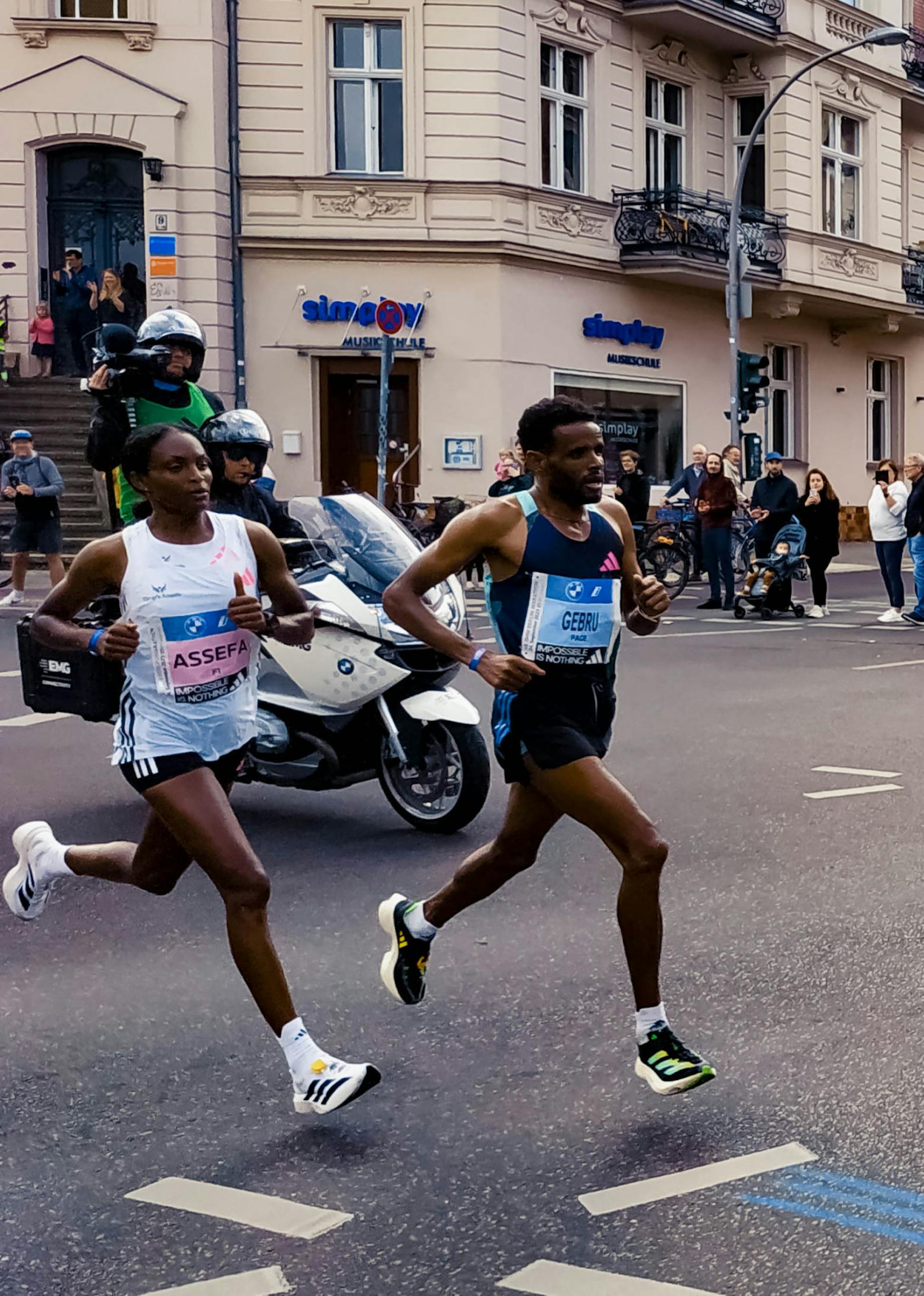International marathon records are shattered
This past fall, Kelvin Kiptum and Tigist Assefa cemented their names in history as the fastest men and women to ever run a marathon.
On Oct. 8, 2023, Kelvin Kiptum, a 23-year-old from Kenya, became the first person to run a marathon in under 2 hours and one minute. His time of 2:00:35 at the Chicago Marathon earlier this fall makes him the fastest male marathon runner in the world, surpassing Eliud Kipchoge, who ran a 2:01:09 in Berlin last year.
Kiptum, a young newcomer to the marathon scene, actually began the marathon slightly behind Kipchoge. In the 22nd mile, however, he astounded audiences with the fastest marathon mile ever recorded, taking the lead and making headlines. Kipchoge, widely known as the greatest marathon runner in the world, is 38 years old and approaching the end of his career.
Although both Kiptum and Kipchoge train very intensely, they have different training schedules; Kiptum ran a whopping 180 miles per week while training for the Chicago marathon, whereas Kipchoge ran 140 miles per week when he broke the marathon world record in Berlin 2022. Kiptum’s intense weekly regime, in which his coach commented that he trains “until he feels fatigued,” has caused some concern about burnout. Despite what Kiptum’s incredible mile times may lead us to believe, marathons and marathon training is certainly not a sprint. For Kiptum, taking advantage of his potential while he is in his prime is critical. The question of whether or not Kiptum will remain healthy and ahead of Kipchoge is one that can only be answered with the test of time.
Tigist Assefa, a 26-year-old Ethiopian runner, also made headlines by breaking the women’s world marathon record at the Berlin Marathon on Sept. 24, 2023. Assefa’s incredible time of 2:11:53 beat Brigid Kosgei’s time of 2:14:04 from the Chicago Marathon in 2019. Assefa represented Ethiopia at the 2016 Rio Olympic Games in the 800-meter, and her coach commented that going from the 800-meter run to breaking the world marathon record is a very impressive feat. Assefa also had to work through the struggle of an Achilles tendon injury, which caused her to switch from the track to road racing. Shaving two minutes off of the world record can only be attributed to her brutal training and hard work ethic, as her coaches only had high praise for her determination. She believes that women can certainly make the marathon record in under 2:10, and her coach thought it could be achieved before 2030.
Assefa’s record-shattering performance has many people wondering what the future holds for shoe shape, technology, and enhancement. Many media outlets specifically covered Assefa’s shoes, an odd variable to focus on, as oftentimes for male runners their training regimen is more often mentioned. Weather, routes, visibility, and shoes are some of the many variables that affect the performance of marathon runners, and given that the other factors can be unpredictable, many runners look to shoes as a controllable variable.
The marathon is one of the most grueling sports in the world, requiring intense stamina, training, and perseverance. Runners must fight through pain, intense training regimens, and difficult course routes. Marathons and marathon runners also hold a special place in Bostonian’s hearts, as the Boston marathon is arguably one of the hardest marathon routes in the world. Heartbreak Hill is a seemingly insurmountable obstacle, and these record-breakers are very impressive for pushing themselves to their physical and mental limits.
Looking to the future, the Boston Marathon is Monday, Apri. 15, 2024, an event that will gather international athletes from all corners of the globe to come together in Boston. Given the fierce competition between Americans and international athletes such as Assefa and Kiptum, the marathon will certainly be one for the books.



Please note All comments are eligible for publication in The Justice.